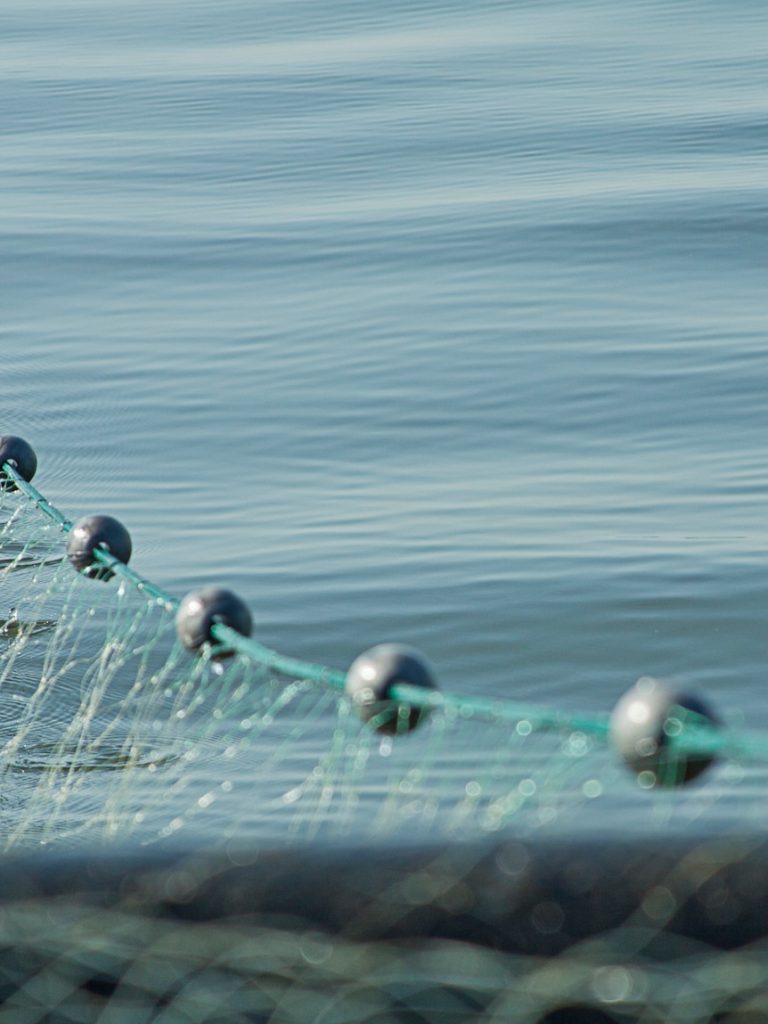Queensland fishers say a proposal to close some waters in Far North Queensland to gill netting will result in more imported and costly seafood for consumers, but conservationists welcome the change.
Key points:
The Queensland government is proposing widespread gillnet bans in the Gulf of CarpentariaFishers say they were not consulted on the extent of the bansResearchers say the gulf is a internationally important refuge for four sawfish species
The Queensland Future Fishing Taskforce early in September presented industry with a summary of several potential net-free zones in the Gulf of Carpentaria, including all rivers and creeks, the area surrounding Mornington Island, and a large section off the north-west coast of the peninsula.
Barramundi and grey mackerel are the main fish species caught in the region’s gillnets.
But other marine life live there too, including dugongs, turtles, dolphins, and four of the world’s few species of sawfish.
The state government proposal suggests closing about half the current gillnet fishery area of the gulf.
Fisher to ‘shut down’ under changes
Gulf of Carpentaria Commercial Fishers Association chairman David Wren said the closure would take 6 million portions, or 600,000 kilograms, of protein from the Australian market.
Affected areas include Mornington Island, Albatross Bay, Pormpuraaw, all rivers and creeks.(Supplied: Gulf of Carpentaria Commercial Fishers Association)
He said it would also make his enterprise unviable.
“With the closure of that area, Wren Fishing is effectively shut down. It’ll be uneconomical for us to keep fishing,” he said.
“Supposedly the expert panel met with all other stakeholders except for the commercial fishing sector, [but] we were never invited and they came up with this map.”
Mr Wren said it would not be sustainable for the entire current commercial fleet to fish the proposed remaining parts of the gulf not covered by the ban.
David Wren (third from the left) fears his operation with 50 employees will become uneconomical.(Supplied: David Wren)
No decisions made yet
Queensland Minister for Agricultural Industry Development, Fisheries, and Rural Communities Mark Furner said no decisions had been made and public consultations were open.
“The Queensland government has established a Future Fishing Taskforce to advise on the implementation of the commitments made, including the establishing of additional gillnet free zones in the Gulf of Carpentaria and other locations of high ecological value,” he said.
“The list of potential closures was derived from the community following the media release or through submissions to the Future Fishing Taskforce.”
Minister Mark Furner says the proposed closures were generated from the community.(ABC News: Charlie McKillop)
Fish markets to be affected
The federal and state governments earlier this year announced $160 million of funding to buy back licences and phase out the use of gillnets “and other high-risk fishing activities” on the Great Barrier Reef by the end of 2023.
At the same time, it flagged the establishment of “additional gillnet free zones in the Gulf of Carpentaria and other locations of high ecological value”.
Cairns-based seafood wholesaler Independent Seafood Producers Shawn McAtemney said if the proposal went ahead, wholesalers down the eastern seaboard and into Victoria would find it increasingly difficult to access barramundi and grey mackerel.
Seafood exporter Shawn McTamney (left) believes more imported fish will end up on Australian plates.(Supplied)
“I would expect the consuming public will be asked to pay more for that product, given the fact that fishers are going to have to travel at further distances and greater distances to catch their product,” he said.
“There is no doubt that there would be increased pressure on imported substitutes in the marketplace.”
The ‘whole world is watching’
Dr Barbara Wueringer, director and principal scientist at Sharks and Rays Australia, has recently published her research linking sawfish captures with gillnetting.
Dr Barbara Wueringer (front right) has been working with fishers to protect sawfish.(Supplied: Barbara Wueringer)
“We know that fishers interact with sawfish,” she said.
“I’ve always tried to work with fishers to find ways of making these fisheries more sustainable when it comes to threatened species
“If we can have regularly spaced closures in the gulf then these areas would act as refuges for threatened species.”
A sawfish caught as part of a rescue program in the Nothern Territory’s Daly River region.(ABC News: Che Chorley)
Dr Wueringer said the Ducie and Wenlock rivers on the peninsula’s north-west were the only place in the world where four species of philopatric sawfish were found together and Australia had a “global responsibility” to look after them.
“I would like to see fisheries that are sustainable … that provide fish for the general public, but at the same time don’t allow our threatened species to decline even further or to even go extinct,” she said.
“When it comes to sawfish, the whole world is watching because we are the safe haven for four species.”
>>> Read full article>>>
Copyright for syndicated content belongs to the linked Source : ABC News (AU) – https://www.abc.net.au/news/2023-09-13/gulf-of-carpentaria-proposed-gill-net-ban-criticised-by-fishers/102851114
